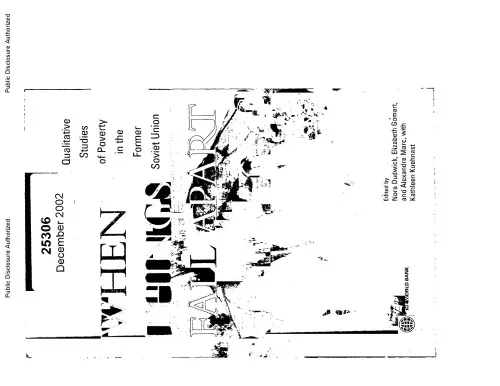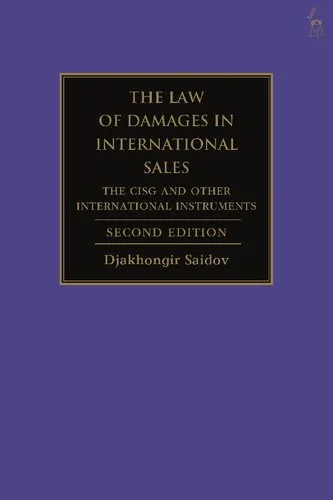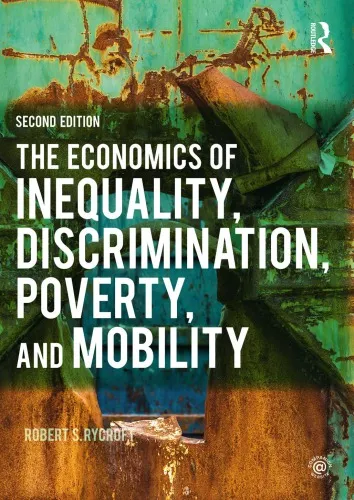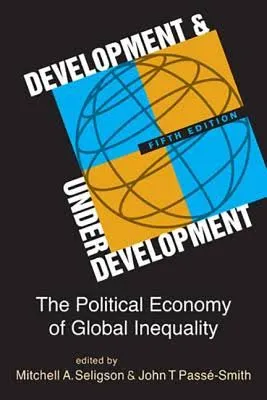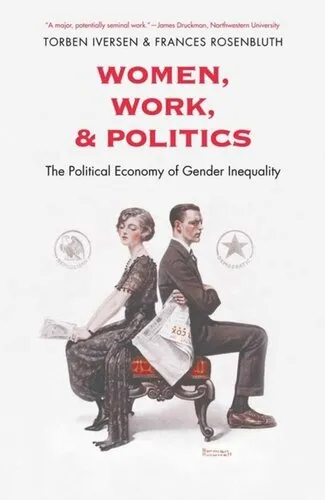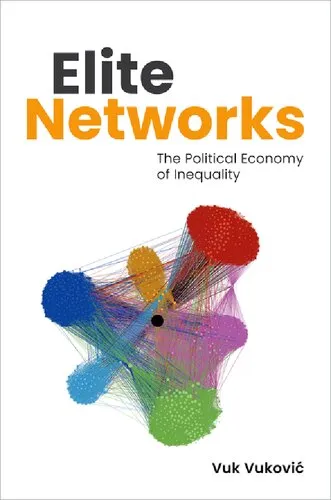When things fall apart: Qualitative Studies of Poverty in the Former Soviet Union
4.5
بر اساس نظر کاربران

شما میتونید سوالاتتون در باره کتاب رو از هوش مصنوعیش بعد از ورود بپرسید
هر دانلود یا پرسش از هوش مصنوعی 2 امتیاز لازم دارد، برای بدست آوردن امتیاز رایگان، به صفحه ی راهنمای امتیازات سر بزنید و یک سری کار ارزشمند انجام بدینکتاب های مرتبط:
معرفی کتاب
کتاب «وقتی همهچیز فرو میپاشد: مطالعات کیفی فقر در اتحاد جماهیر شوروی سابق» اثری بینظیر است که به بررسی عمیق وضعیت فقر در این منطقه میپردازد. این کتاب توسط نویسندگان 'Dudwick Nora, Comart Elisabeth, Marc Alexandre' تألیف شده و به تحلیل تغییرات اجتماعی و اقتصادی پس از فروپاشی شوروی میپردازد.
خلاصه کتاب
کتاب به بررسی وضعیت فقر بعد از فروپاشی اتحاد جماهیر شوروی میپردازد، جایی که تحولات سریع اقتصادی و سیاسی منجر به دگرگونیهای ژرفی در ساختار اجتماعی و اقتصادی کشورهای عضو شد. مطالعه کیفی فقر در این دوران، دستمایهای برای شناسایی چالشها، راهبردها و پیامدهای این تغییرات بوده است. نویسندگان به صورت علمی و تجربی، با استفاده از case studies و تحلیلهای کیفی اطلاعاتی از زندگی روزمره مردم فراهم میکنند که به فهم عمیقتری از مشکلات فقر کمک میکند.
نکات کلیدی
- تأثیر تغییرات سیاسی و اقتصادی بر سطح زندگی مردم
- نقش سیاستهای آشفته در افزایش فقر بین جوامع
- تجزیه و تحلیل روشهای جامعهپذیری و زنده ماندن بر مبنای منابع محدود
جملات معروف کتاب
«نابسامانیهایی که از فروپاشی اقتصادی و سیاسی برآمدهاند، ممکن است تداعیکننده تغییرات تدریجی باشد، اما برای مردم عادی این تغییری عظیم و ناگهانی است.»
«توسعه فقر را در قالب سلسلهمراتب اجتماعی و نقش زنان و کودکان در دورههای بحرانی تحلیل میکند.»
چرا این کتاب مهم است؟
این کتاب با تحلیل دقیق و جامع خود، فرصتی منحصربهفرد برای درک بهتر شرایط پیچیده اجتماعی-اقتصادی پس از فروپاشی شوروی فراهم میآورد. اهمیت این اثر نهتنها در شناسایی اشکال مختلف فقر بلکه در بررسی روشهای مختلف اجتماعی و اقتصادی برای کاهش اثرات منفی این عارضه نهفته است. برای هر کسی که علاقهمند به درک گذرگاههای تغییر اجتماعی و اقتصادی در کشورهای پساشوروی است، این کتاب یک منبع ارزشمند و کاربردی محسوب میشود.
Introduction to "When Things Fall Apart: Qualitative Studies of Poverty in the Former Soviet Union"
Detailed Summary of the Book
"When Things Fall Apart: Qualitative Studies of Poverty in the Former Soviet Union" offers a comprehensive, poignant examination into the profound socio-economic transformations that shook the post-Soviet landscape. This book delves into the narratives of individuals across the former Soviet Union, revealing the complexities and the depth of poverty experienced by many in this tumultuous period. Through qualitative research, the authors unravel the human aspect of economic collapse, examining how individuals and families adapted—or failed to adapt—to the challenges of post-Soviet realities.
The study collects voices from various regions, each grappling with its unique post-Soviet identity. From rural areas that faced agricultural stagnation to urban centers struggling with industrial collapse, these narratives provide a mosaic of experiences shaped by historical, cultural, and social factors. The authors focus on capturing the resilience, aspirations, and daily struggles of those they interacted with, offering insights grounded in personal experiences rather than purely statistical analyses.
Key Takeaways
- Understanding Poverty: The book highlights how poverty in the former Soviet Union cannot be understood through economic metrics alone; it requires a deep dive into personal stories and social dynamics.
- Transition Challenges: The sudden shift from a centrally planned economy to market economies was chaotic, leading to widespread poverty and social disruption.
- Resilience and Adaptation: Amidst adversity, many individuals and communities demonstrated remarkable resilience and adapted in creative ways to survive and even thrive.
- The Role of Government: The narratives reveal mixed perspectives on the roles of governments and institutions during the transition, often seen as both enablers and inhibitors of progress.
Famous Quotes from the Book
"In the silence of economic downturn, the voices of the impoverished resonate loudly, narrating the untold stories of survival and dignity."
"Poverty is more than a lack of resources; it's the absence of opportunity and choice, amplified by systemic change."
Why This Book Matters
The significance of "When Things Fall Apart" lies in its ability to humanize the statistical data often associated with the fall of the Soviet Union. By prioritizing personal experiences over numbers, the book offers scholars, policymakers, and the general public a nuanced understanding of poverty and transition in the region. It underscores the importance of qualitative research in policy-making, advocating for solutions grounded in the lived realities of affected populations. This book is an essential read for anyone interested in socio-economic transformations, international development, and the profound impacts of historical change on everyday lives.
دانلود رایگان مستقیم
شما میتونید سوالاتتون در باره کتاب رو از هوش مصنوعیش بعد از ورود بپرسید
دسترسی به کتابها از طریق پلتفرمهای قانونی و کتابخانههای عمومی نه تنها از حقوق نویسندگان و ناشران حمایت میکند، بلکه به پایداری فرهنگ کتابخوانی نیز کمک میرساند. پیش از دانلود، لحظهای به بررسی این گزینهها فکر کنید.
این کتاب رو در پلتفرم های دیگه ببینید
WorldCat به شما کمک میکنه تا کتاب ها رو در کتابخانه های سراسر دنیا پیدا کنید
امتیازها، نظرات تخصصی و صحبت ها درباره کتاب را در Goodreads ببینید
کتابهای کمیاب یا دست دوم را در AbeBooks پیدا کنید و بخرید
1687
بازدید4.5
امتیاز0
نظر98%
رضایتنظرات:
4.5
بر اساس 0 نظر کاربران
Questions & Answers
Ask questions about this book or help others by answering
No questions yet. Be the first to ask!
